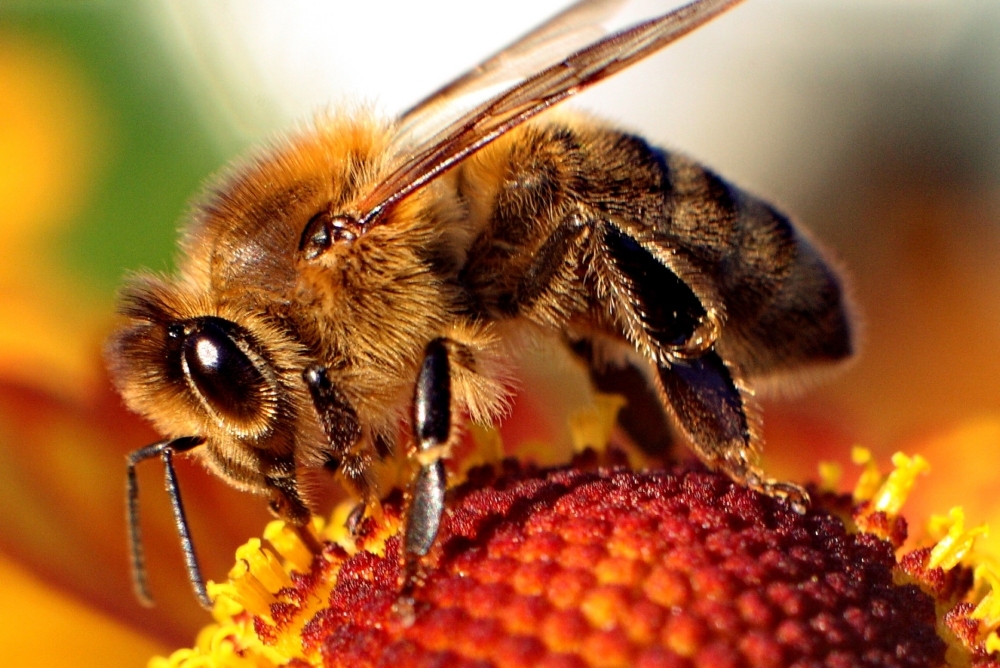As temperatures finally start to rise and the flowers fully bloom, bees are coming out of hibernation and carrying out their duties in the ecosystem. Bees are one of the hardest working insects in the animal kingdom, they are responsible for pollinating about one-sixth of the world’s flowering plants and one-third of the food crops we grow. Through a partnership with Bridgetown Bees and The Institute for Sustainable Solutions Living Lab Program, The Student Sustainability Center at Portland State University (PSU) launched an apiary with honey bees and mason bees in June of 2016. Located in the Resident’s Community Orchard on 12th & Montgomery are two beehives and one nest box of mason bees. The goal of the Campus Apiary is to create a pollinator-friendly campus with insects that will improve our urban ecosystem and create educational opportunity for the community. PSU Senior and biology major, Stefanie Steele, was at the forefront in the development of this project last year.
“Bees provide an excellent opportunity for students to learn about how the actions we take affect the environment,” Steele said, “By highlighting the value of pollinators and encouraging students to engage with these beautiful and highly organized insects, we can learn about the interconnected nature of our ecosystem.”
The bee population has been rapidly declining over recent years. One of the many reasons for this pressing decline is the use of harmful pesticides on plants. PSU has been commended by Bee City USA for its commitment to minimizing the use of chemical pesticides and raising awareness of die-offs and colony collapses. According to the organization, PSU is recognized as the number ten “Bee Campus” in the nation.
“Imperiled pollinators are responsible for three-fourths of the world’s plant and tree species. PSU is a stellar example of the influence educational institutions can have on students and larger communities,” said Phyllis Styles, a Bee City USA director.
The Student Sustainability Center has developed an organized, efficient, and effective program that is beneficial for the campus community. In the Student Sustainability Center’s five-year plan they outline each potential risk and a responsive solution. Potential risks include personal injury due to stings and allergies, bee swarm, and theft/vandalism/trespassing/etc. In anticipation of incidents such as these, the Bee Task Force has partnered with several campus departments including Student Health and Counseling, Facilities and Property Management, Campus Public Safety Office, and the Dean of Student Life to ensure that they are equipped with the resources and connections to keep the community safe.

Tim Wessels of Bridgetown Bees played a large role in the educational aspect of the campus apiary. He lectures volunteers on the central educational themes necessary to have a comprehensive understanding of bees and why they are at risk. Themes include the role of pollination in the food system, the relationship between humans, animals, and plants, organic methods of beekeeping, the value in maintaining native plant species, and the biology of the honey bees and mason bees. The founding members of the program were pleasantly surprised at the turn out to Wessels’ discourse.
“It’s something that is so important to know about. There are things we can all do to actually change what is going on,” said Naomi Sheff, a student volunteer from Lewis and Clark College.
There are simple ways to help bees, for example eating and buying local honey. Most local bee harvesters do not use chemical pesticides and take action to protect bees from various harmful pests. Another way to help the cause is simply planting plants, providing bees the forage necessary to make honey.
The Student Sustainability Program at PSU has excelled in turning thought into action, establishing attainable goals and developing a logical format for which to pursue those goals. Several departments and partnerships contributed to the development of this program came together to achieve two common goals—education and sustainability—and neither would have been achievable without the efforts of each group. The campus apiary has demonstrated the positive impact that is possible when like-minded people work together towards the same goal, and inspires the PSU community to do the same.





